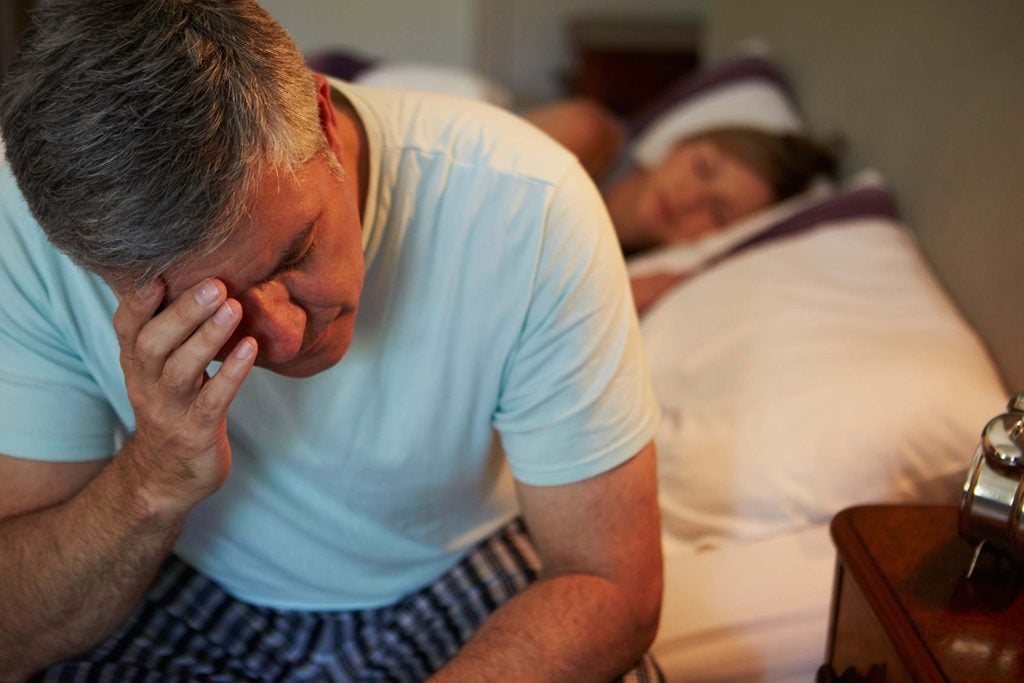Can’t Fall Asleep on Sunday Nights? There’s a Scientific Explanation
Updated: Feb. 14, 2023
There are good reasons you experience insomnia on Sunday nights.

So, it’s Sunday night. You crawl into bed and turn out the lights, but end up tossing and turning for hours before finally falling asleep. Come Monday morning, you hit the snooze button at least a few times and arrive to work with bags under your eyes and a foggy brain.
According to a survey by online panel provider Toluna Omnibus, one in four people have trouble falling asleep on Sunday nights. A separate study by Monster.com found that 75 percent of workers experience some version of the Sunday night blues. Plus, on average, most people manage to get six and a half hours of sleep on Sundays—well below the recommended eight hours. What gives?
Welcome to Sunday night insomnia, or as sleep specialist Michael J. Breus, PhD, refers to it: social jet lag. And according to experts, you can mostly blame it on your weekend schedule, which is usually quite different from your usual Monday through Friday routine.
“I think a lot of people don’t realize how shocking our [weekend] habits are to the body,” says Wesley Delbridge, RD, spokesperson for the Academy for Nutrition and Dietetics. For one, “there’s not a lot of physical or mental activity that happens on Sunday,” says Delbridge. “Because you’re not tired from work or moving around, when it comes time to fall asleep, your body stays awake.”
Plus, sleeping in during the weekends throws your entire biological clock (or circadian rhythm) out of whack, just like the “jet lag” you experience when traveling across time zones. Alcohol and caffeine might be culprits, too; that 2 p.m. mug of coffee you chug to recover from a boozy Saturday evening will be in your system for hours afterward, leaving you tossing and turning late into the night.
The other contributing factor to your Sunday insomnia might be psychological.
Stress and anxiety about the week ahead can spike on Sunday night. If your brain starts micro-managing your entire week’s schedule the moment your head hits the pillow, it’s like “an engine you can’t turn off,” says Delbridge. Whether it’s worrying about a big presentation or your monthly sales numbers, “your body reacts the same way—fight or flight—as it would if you were being attacked by a tiger,” Delbridge said.
Surging adrenaline and a rapid heart rate will keep you wide awake for hours, your mind spinning.
“You can still eat fantastically, exercise, wake up on time, and be stressed out and not fall asleep,” Delbridge says. “There’s nothing more impactful than the stress of your life and what that’s going to do on every part of your body, including your sleep.”
To stave off the Sunday night blues, Delbridge suggests waking up at a normal time on Sundays, getting active in the morning, and avoiding big, heavy meals with a lot of calories (especially before bed!). And if it’s stress that has you counting sheep, try writing in a journal or listening to music at night. With a little training, you’ll be catching those Zzz’s in no time.
MORE: These Secrets from Sleep Doctors Can Help You Snooze Better